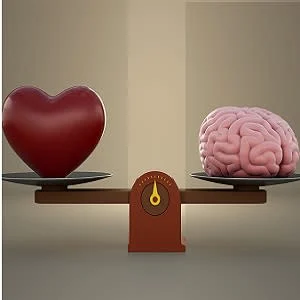The book “Heart: A History”, written by Dr. Sandeep Jauhar, a cardiologist, is a useful reference on the evolution of cardiovascular medicine. It features stories of the intrepid doctors who pioneered cardiovascular surgery in the late 19th century, using needles and catgut in performing some procedures back then. Readers also learn about remarkable technological advances – from open-heart surgery to the artificial heart – that have transformed the practice of cardiology.
While acknowledging the importance of these cardiac innovations in improving care and outcomes, Dr. Jauhar wants the field of cardiology to devote more attention to the emotional factors that can influence heart disease, like unhappy relationships, poverty, income inequality, and work stress.
“I think the iterative technological advances will continue,” he said. “But the big frontier is going to be in marshalling more resources to address the intersection of the emotional heart and the biological heart.”
Dr. Jauhar’s interest in this subject stems from his family’s malignant history with heart disease, which killed several of his relatives. His paternal grandfather died suddenly at the age of 57 when a frightening encounter with a black cobra in India caused him to have a heart attack. At the age of 45, Dr. Jauhar had his own brush with heart disease. Despite exercising regularly and leading a healthy lifestyle, an elective procedure called a CT angiogram showed he had blockages in his coronary arteries. As he reviewed the radiographic images of his heart, Dr. Jauhar came to a startling realisation.
“Sitting numbly in that dark room,” he writes, “I felt as if I were getting a glimpse of how I was probably going to die.”
Heart disease, in fact, remains the leading killer of adults in the United States. However, as Dr. Jauhar notes, the role that emotional health plays in the development of the disease remains largely underappreciated. The doctor traces this to the landmark Framingham Heart Study, started in 1948, which followed thousands of Americans and identified important cardiovascular risk factors like cholesterol, blood pressure and smoking. The Framingham investigators initially considered looking considered looking at psychosocial determinants of heart disease as well, but ultimately decided to focus on things that were more easily measured.
“What came out of it were the risk factors that we now know and treat,” Dr. Jauhar said. “What was eliminated were things like emotional dysfunction and marital health.”
Disregarding psychosocial factors, he says, was a mistake. In the decades since then, other studies have shown that people who feel socially isolated or chronically stressed by work or relationships are more prone to heart attacks and strokes. Dr. Jauhar argues that health authorities should list emotional stress as a key modifiable risk factor for heart disease. But it is much easier to focus on cholesterol than emotional and social disruption.
As reported in some studies, doctors give their patients about 11 seconds on average to explain the reasons for their clinical visit before interrupting them. Since writing the book, Dr. Jauhar has a newfound appreciation for having patients talk more about the things that are bothering them so he can better understand their emotional lives. He has also tried his hand at new habits to help reduce stress, such as yoga and meditation. Aside from exercising daily, the doctor makes sure that he gets to spend more time with his children.
Dr. Jauhar says he is now better able to relate to his patients since discovering his own heart disease. “I used to be so wrapped up in the rat race that I was probably putting an inordinate amount of stress on myself,” he said. “Now I think about how to live a little more healthfully, to live in a more relaxed way. I have also bonded more with my patients and their fears about their own hearts.”
Image Credit: iStock
Latest Articles
Heart, emotions, Heart: a history, Dr. Sandeep Jauhar
In a new book, "Heart: A History”, Dr. Sandeep Jauhar highlights the need for doctors to devote attention to factors like unhappy relationships and work stress as they can influence heart disease.










